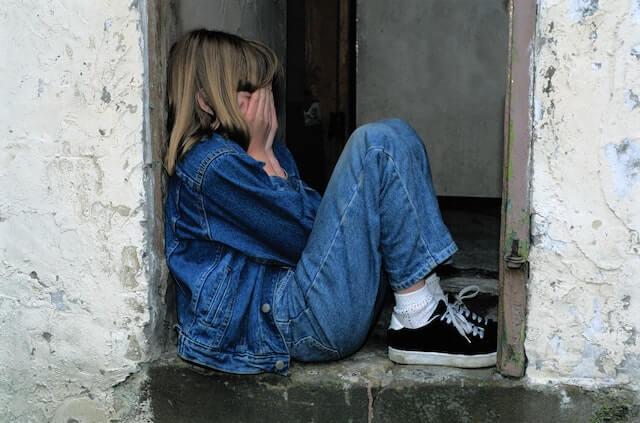Our dedication lies not just in treating symptoms but in addressing the root causes, offering a holistic approach that integrates the best of therapeutic practices with the warmth of community support.
The Impact of Parental Substance Abuse on Children

It’s no secret that once addiction gets a hold of you, many aspects of your life could falter in the worst of ways. Addiction does not discriminate–it has the potential to affect anyone, regardless of socioeconomic status, cultural background, or age group. The devastating effects of drug and alcohol abuse may not only impact the person suffering from the addiction, but also anyone else in their inner circle. With the impact of parental substance abuse on children, there is more at stake here as the symptoms of the disease, and life choices made in active addiction could have negative ramifications on romantic partners and children, unless you do something to get sober.
Statistics on Impact of Parental Substance Abuse on Child Outcomes
In order to put this issue into a better perspective, it would help to examine the full scope of parental addiction on children. The following are some key statistics on the impact of parental substance abuse on children:
- About 12% of children in the country live with a parent who is dependent on or abuses drugs and alcohol.
- 8.3 million children under the age of 18, lived with at least one parent who was either a substance-abuser or substance-dependent.
- 1 in 5 children grow up in home environments where a parent abuses drugs or alcohol
Since children are still in the developmental phases of their lives (meaning they are incredibly vulnerable), they run the risk of repeating such behaviors, later in life, along with the emotional and physical distress that comes with it.
Impact of Parental Substance Abuse on Children
As stated earlier, the impact of parental substance abuse on children can have a lasting impact on their physical, emotional, and mental state.
Biological and Psychological impacts
Children who have parents who struggle with addiction may very well deal with physical hindrances of their parents’ decisions at very stages of childhood, but the earliest could be right before the child is born. The effects of drug and alcohol use on a developing fetus during pregnancy are damaging, and can include:
- Physical defects
- Stunted growth
- Malformation in bodily organs
- Attachment or attention disorders
- Neonatal abstinence syndrome (NAS)– describes when babies experience withdrawal upon birth.
Mental health impacts
An environment that is unstable for both the parents and their children could lead to instabilities in one’s mental health. In these types of situations, children can perform poorly in school, but even if they succeed and make high marks, it’s very easy to fall through the cracks since they may be deprived of the much-needed encouragement and support from their parents. Because parents who suffer from addiction may be deeply entrenched in their substance use disorder, it may impact the quality of parenting that can occur.
Children need guidance from their parents and without it, the foundation of discipline and respect will not be there. The children of these parents could grow to harbor resentment towards authority of any kind, going as far as to lash out in order to get any kind of attention. Additional mental health impacts that children might face include ADHD, depression, Oppositional Defiant Disorder, truancy, trauma, and other stress-related disorders.
Emotional impacts
Much like the physical tolls of addiction on children, the emotional impacts could stem from the time of birth. The bond between parent and child is irreplaceable. When intact, there is a harmonious connection that helps keep children centered, and provides feelings of love, and appreciation. Yet, when parents with substance use disorders continue to plunge further into the abyss of their addiction, their children’s emotional needs may be put on the back burner or ignored altogether. This causes a chain of issues (i.e.-trust issues, disconnection, feeling shame towards parents). The unhealthy patterns may often start when the child is an infant.
The communication pattern of babies can best be described as rudimentary. When a baby cries, they are trying to convey how they are feeling, at that moment. If a parent does not pick up on these cues and fails to provide basic needs, the infant will stop displaying cues, and the pattern of dysfunction could carry over into childhood.
The continued lack of care could cause the child to grow up with a myriad of trust and dependency issues. Their feelings of remorse and empathy might be limited, as neither were shown to them growing up. The child may even grow up and feel more emotionally responsible in relationships and could take on adult roles much younger than developmentally appropriate.
Meeting the Needs of Parents with Addiction Treatment
When a parent seeks out addiction treatment, it’s not just as simple as treating the parent–the child or children will certainly need therapy also, so that they can recover from their own experiences and eventually repair the relationship with their parents. Parents in addiction treatment require ongoing support from multiple sources. Apart from the therapeutic modalities that can be found in our addiction treatment programs in Virginia, other supplemental services like occupational training, transportation, and affordable housing, might be needed too. So, which substances are those suffering from addiction most often being treated for? Most of the time, it’s prescription medication. According to the CDC, 44% of Americans die from overdosing on prescription pain medication every day– some of them are intentional, while other cases are accidental. Parents may use these substances to combat the daily hardships of life, or to facilitate rest after a chaotic day. Whatever the case may be, if they agree to addiction treatment, they go into it knowing that it should consist of two key components:
- Repairing the relationship with children, when the time is right: This is done through therapeutic counseling, parental education, financial assistance, etc. Treatment should offer the opportunity to cover the basics and learn new skills.
- Resolving their addiction: Parents must resolve their addiction with a treatment program that best fits their needs. Thankfully, a range of recovery services are available. Listed below are some of the most common treatment options:
- Inpatient treatment
- Residential treatment
- Partial hospitalization program (PHPs)
- Intensive outpatient program (IOPs)
Ultimately, the myriad of difficulties for children of parents with addiction does not have to be an ongoing problem if addiction treatment is pursued. Encore Outpatient Services will help you tip the scales in your favor, so that you can reclaim a life that is free from addiction, giving your children the love and guidance you know they deserve. If you are ready to take that brave next step, contact us today!
Let Us Support You On Your Recovery Journey!
Copyright 2026 Encore Outpatient Services | All Rights Reserved



